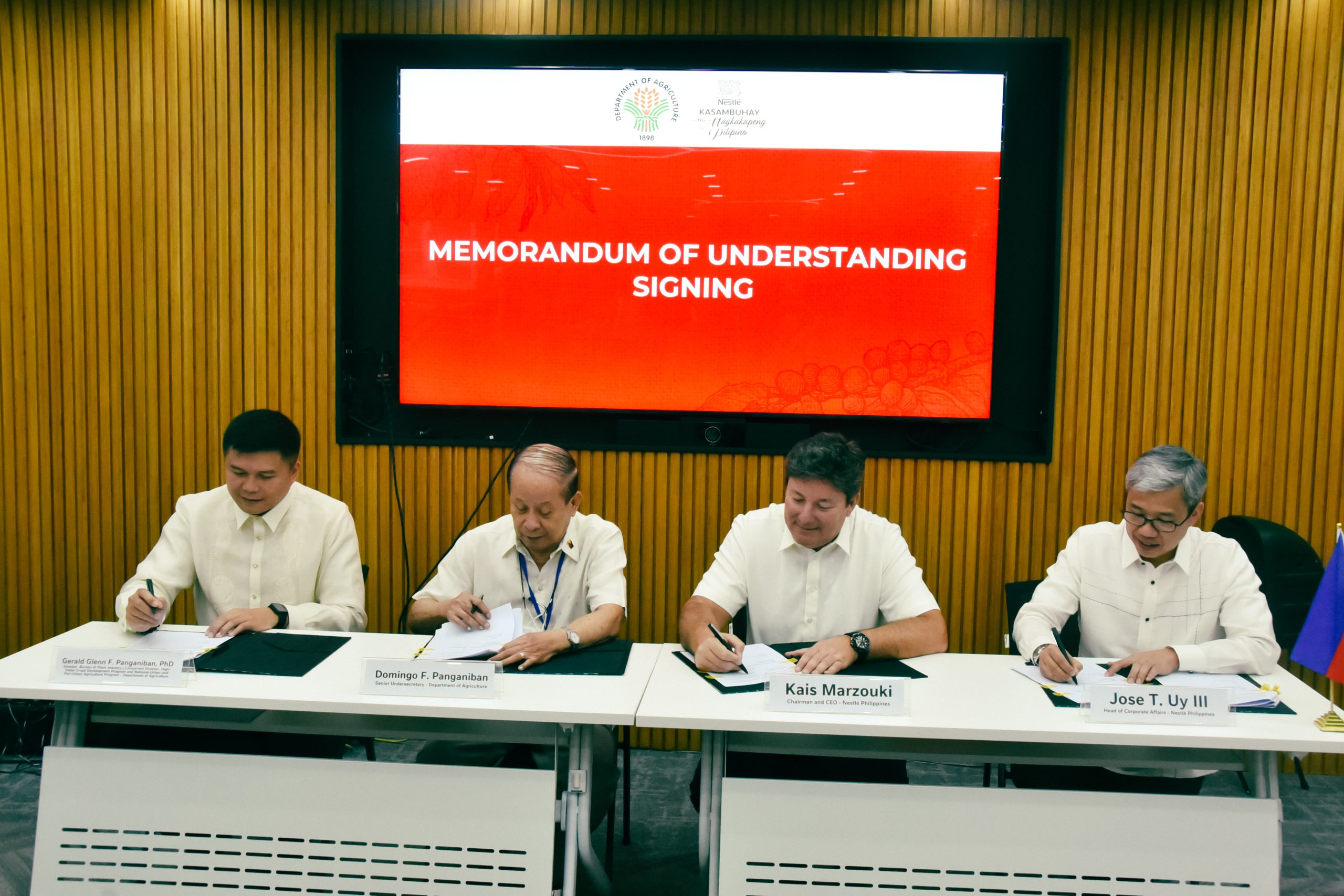
The Department of Agriculture (DA) and Nestlé Philippines, Inc. will implement the Mindanao Robusta Coffee Project aimed at enhancing the sustainability of Robusta coffee farming in Mindanao by improving the farmers’ access to farm inputs, training, and market opportunities.
DA Senior Undersecretary Domingo Panganiban and Nestlé Philippines, Inc. Chairman and Chief Executive Officer Kais Marzouki signed the Memorandum of Understanding (MOU) for the project implementation on March 1, 2023.
“I thank everybody [involved], most especially Nestlé, for embarking on a program that we all know is very important to Filipino farmers and the country. All of us will work together as one and I hope that this will be the start of a long activity that we shall be undertaking as far as the coffee industry is concerned,” Undersecretary Panganiban said.
The project will primarily benefit Mindanao Robusta coffee farmers who are practicing monocropping and intercropping in coconut areas and other diversified farming systems suitable for coffee production.
“We are aligned with the DA in improving farmer productivity, profitability and sustainability. We also believe that it is time to go beyond sustainability. This is why we are channeling efforts to ramp up farmers’ understanding and adoption of regenerative agriculture practices like composting, intercropping, cover cropping and agroforestry. Doing these will enhance their livelihood and resilience to the effects of climate change”, Marzouki said.
The Mindanao Robusta Coffee Project has the following components: 1) integrated coffee nutrient management research for development; 2) coffee productivity (fertilizer support); 3) capacity building activities; 4) establishment of integrated coffee centers; and 5) logistics and marketing.
The DA offices led by the High Value Crops Development Program (HVCDP), Bureau of Agricultural Research (BAR), Agricultural Training Institute (ATI), Agribusiness and Marketing Assistance Service (AMAS), and their regional office counterparts will provide inputs, facilities, capacity building activities, and marketing support, among others.
Nestlé, on the other hand, will provide intensive technical assistance, collaborate with the concerned institutions, help ensure the farmers’ compliance with applicable quality standards, and serve as a ready market of the coffee produced by the local farmers.
The DA and Nestlé hope that through the project, the coffee farmers will be able to further increase their yields, improve the quality of their produce, and earn higher incomes.
The collaborative project is in line with the Philippine Coffee Industry Roadmap 2021–2025, which envisions a coffee industry that is cost-competitive, aligned with global quality standards, resilient, sustainable and environment-friendly; and provides continuous benefits to farmers, processors, traders, manufacturers, and exporters. ### (Gumamela Celes Bejarin, DA-AFID)













